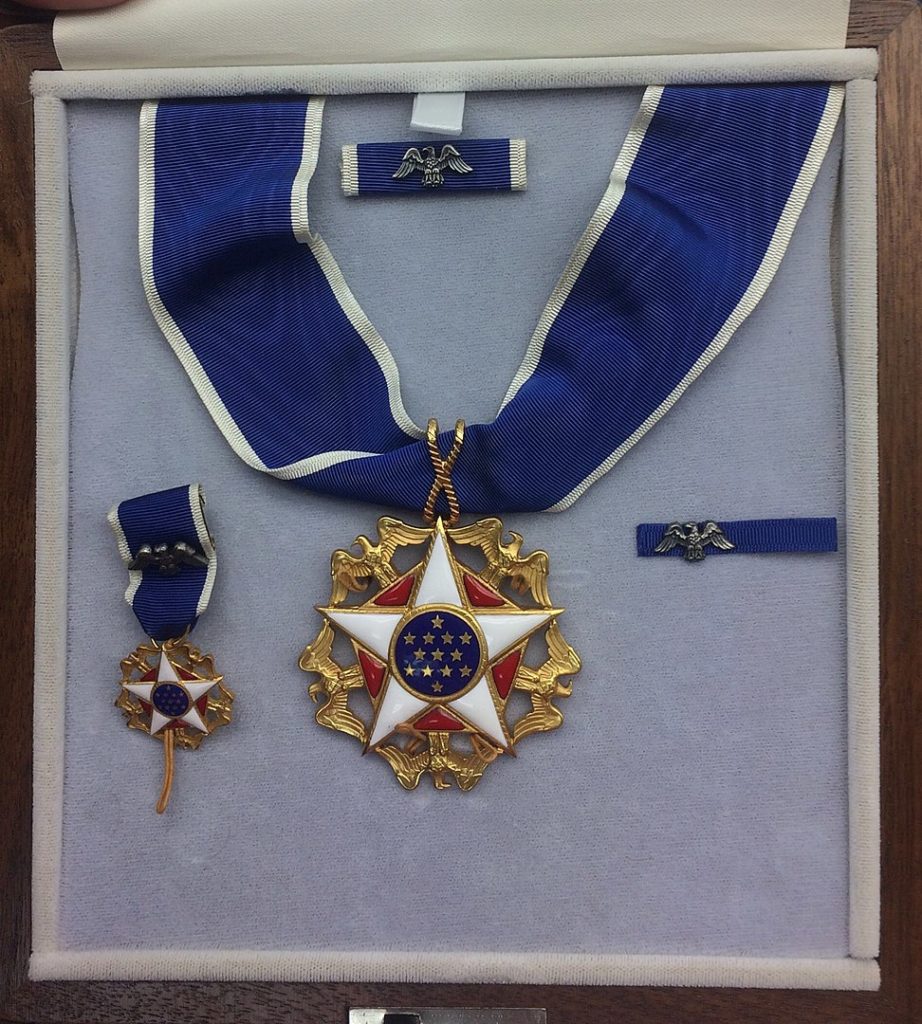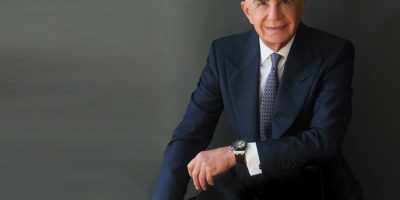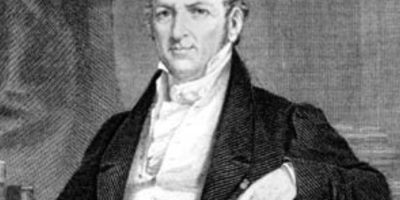
Cesar Chavez. Photo by Trikosko, Marion S.- Wikimedia
Top 10 Unbelievable Facts about Cesar Chavez
Cesar Estrada Chavez was born in Yuma, Arizona on March 31, 1927. In the late 1930s, his family lost their homestead to foreclosure. They joined more than 300,000 people who moved to California during the Great Depression and became migrant farm workers.
Chavez dropped out of school after eighth grade and began working in the fields full time. In 1946, he joined the U.S. Navy, serving for two years in a segregated unit. After his service was over, he returned to farm work and married Helen Fabela, with whom he had eight children.
In 1952, he became a grassroots organizer for the Community Service Organization. This was a Latino civil rights group. Over the next decade, he worked to register new voters and fight racial and economic discrimination, and rose to become the CSO’s national director.
Chavez resigned from the CSO in 1962. This was after other members refused to support his efforts to form a labour union for farm workers. That same year, he used his life savings to found the National Farm Workers Association (NFWA) in Delano, California.
1.He inspired Obama’s slogan, “Yes We Can”

Mural of the slogan Si Se Puede by Cesar Chavez in Austin, Texas. Photo by Everdayzac – Wikimedia
During a 25-day fast in 1972, Chavez and Huerta coined the slogan “Si, se puede,” Spanish for “Yes, it can be done.” It became the UFW’s official motto and a rallying cry for Latino civil rights in general. It later inspired the phrase “Yes, we can” for President’s Obama’s 2008 election campaign.
President Barack Obama adopted the English version “Yes, we can!” first during the Democratic Party of Illinois primaries. It became a slogan of his 2008 presidential campaign. And was the theme of Senator Obama’s speech following his second-place finish in the 2008 New Hampshire primary.
2.Chavez attended 38 different schools before 8th grade

César Chávez’s graduation. Photo by Movimiento – Own work –Wikimedia
As migrant farm workers, Chavez’s family moved often when he was young. That resulted to his changing schools 38 times. Despite his own limited schooling, he advocated education as a means for social improvement.
He did not like school as a child for various reasons. One was he spoke only Spanish but the teachers only spoke English. Second was because of the segregation. Third was because he felt that education had nothing to do with his farm worker way of life.
In 1942 his father was involved in an accident. He did not want his mother to work in the fields so he became a migrant farm worker.
3.He lost support for meeting with a dictator

President Ferdinand Marcos. Photo by Dino Bartomucci – Wikimedia
In 1977, Chavez was widely criticized for accepting an invitation to Manila by Ferdinand Marcos. This was a 20-year president of the Philippines accused of human-rights abuses and corruption. Chavez hoped to win support from Filipino-American farm workers.
The meeting with and his endorsement of Marcos was a gross miscalculation. He listened to Filipino union leaders within the UFW who painted Marcos as a friend of the farm workers movement. They convinced him that endorsing the tyrant would help strengthen the UFW’s support among Filipinos.
It was a major political blunder. This should not overshadow his contributions to the fight for civil rights in the U.S.
4.Chavez was interested in the anti-drug cult Synanon

César Chávez. Photo by Cornelius Michael – Wikimedia
In his later years Chavez studied modern management techniques and group dynamics. This included a strange drug-rehab program, “alternative lifestyle community” and religious cult called Synanon.
The UFW was struggling from dwindling members and motivation. His view was to turn it into a “movement.” This is when Chavez fell under the spell of a cult leader, Charles Dederich, who founded Synanon.
He brought a practice from the cult called “The Game” to UFW. In which people were put in the middle of a small arena and accused of disloyalty and incompetence. Meanwhile a crowd watched their humiliation. He ended up exiling or firing many of the members.
5.Chavez fasted for 36 days at age 61 to protest pesticides

Activist César Chávez. Photo by Los Angeles Times – Wikimedia
Under Chavez, the UFW helped secure union contracts that required protective clothing to reduce workers’ exposure to pesticides. It also and prevented spraying while workers were in the fields. He also fasted for 36 days in 1988 to protest pesticide use on grapes.
He called it a declaration of non-cooperation with supermarkets who promoted, sold and from California table grapes. He was against the pesticides that were being used on the land.
He completed his 36-day Fast for Life on August 21, 1988. The Reverend Jesse Jackson took up where Cesar left off, fasting on water for three days before passing on the fast to celebrities and leaders.
6.He was inspired by his dog to become a vegetarian
He became a vegetarian after realizing that animals felt afraid, cold, hungry and unhappy just like people. His dog Boycott led him to question the right of humans to eat other beings.
He believed that people had to learn to become non-violent toward their fellow creatures in order to be content. He opined that kindness and compassion towards all living beings was a mark of a civilized society. That racism, economic deprival, dog fighting and cock fighting, bullfighting, and rodeos were all cut from the same defective fabric: violence.
He once said that there was no need to exploit animals them in the name of science, sport, fashion, or food.
7.He got Americans to boycott grapes
He harnessed public outrage to achieve unprecedented gains for farmworkers. He caused more than 17 million Americans to boycott grapes to help California farmworkers win contracts.
He gave people a sense of their own power. Farmworkers discovered they could demand dignity and better wages. Volunteers learned tactics later put to use in other social movements. People who refused to buy grapes realized that even the smallest gesture could help force historic change.
This uproar resulted California to pass the landmark Agricultural Labour Relations Act of 1975. This was the nation’s first law which guaranteed farm workers the right to organize, choose their own union representative and negotiate with their employers.
8.Chavez turned down lucrative jobs for the cause

César Chávez. Photo from work permit – Wikimedia
On March 31, in 1962, Cesar quit his job and moved his family moved to a dusty farm town in California’s Central Valley. He founded the NFW with 10 members – Cesar, his wife and their eight young children using all his savings.
In 1962, President Kennedy offered to make him head of the Peace Corps for part of Latin America. It would have meant improvement for his family but he turned down the job.
Cesar embraced a life of voluntary poverty, as did other movement leaders and staff until the late 1990s. He never owned a house. When he died at the age of 66 in 1993, he left no money behind for his family.
9.Chavez was awarded the Presidential Medal of Freedom

Presidential Medal of Freedom. Photo by Toma2552 – Wikimedia
Cesar’s motto, “Si se puede!” (“Yes, it can be done!”), embodies the uncommon legacy he left for people around the world. Since his death, hundreds of communities across the nation have named schools, parks, streets, libraries, and other public facilities, as well as awards and scholarships in his honour.
In 1994, President Clinton awarded Cesar the Presidential Medal of Freedom, the nation’s highest civilian honour.
As a common man with an uncommon vision, Cesar Chavez stood for equality, justice and dignity for all Americans. His universal principals remain as relevant and inspiring today as they were when he first began his movement.
10.His birthday is a holiday
His birthday, March 31st, is an official holiday in 10 states. Cesar Chavez Day is a holiday, celebrated to honour his enduring legacy. The day was initiated by former President Barack Obama in 2014.
Through his persistent efforts and non-violent protests, he became America’s labour rights hero. On March 31, union members and community leaders come together to celebrate the life of this American icon. They take inspiration from his four decades of selfless service to the workers of the United States.
It is commemorated to promote service to the community in honour of Cesar Chavez’s life and work. Some state government offices, community colleges, libraries, and public schools are closed.
Planning a trip to Paris ? Get ready !
These are Amazon’s best-selling travel products that you may need for coming to Paris.
Bookstore
- The best travel book : Rick Steves – Paris 2023 – Learn more here
- Fodor’s Paris 2024 – Learn more here
Travel Gear
- Venture Pal Lightweight Backpack – Learn more here
- Samsonite Winfield 2 28″ Luggage – Learn more here
- Swig Savvy’s Stainless Steel Insulated Water Bottle – Learn more here
Check Amazon’s best-seller list for the most popular travel accessories. We sometimes read this list just to find out what new travel products people are buying.










